What do they do now?
The One, Big, Beautiful Bill is law. Congressional Republicans and the Trump administration stuffed every legislative initiative imaginable (that would mesh with Senate budget rules) into the package. Now Republicans must figure out what to tackle during the remaining 18 months of the 119th Congress.
There are always subjects on which the GOP wants to focus and legislate. But after approving the hallmark of President Trump’s legislative agenda, there are frankly not a lot of other big items rolling down the parliamentary pike.
RACE AGAINST TIME: HOW CONGRESS BARELY MADE JULY 4 DEADLINE ON ‘BIG, BEAUTIFUL BILL’

President Donald Trump, right, shakes hands with House Speaker Mike Johnson after signing his signature bill of tax breaks and spending cuts at the White House on Friday, July 4, 2025 in Washington, D.C. (AP Photo/Julia Demaree Nikhinson)
But we’ll focus on a few that are important to the GOP – and could make headlines.
The first big project comes next week. A “rescissions” bill is due in the Senate. A “rescission” is a request by the administration to cancel spending that Congress had already appropriated. Congress approved an interim spending bill in March to avoid a government shutdown, but a few months later, White House Budget Director Russ Vought sent a “rescissions” request to Congress. Vought hoped to claw back $9.4 trillion in spending for USAID and public broadcasting.
BIDEN’S DOCTOR ARRIVES FOR CLOSED-DOOR INTERVIEW IN HOUSE HEALTH PROBE
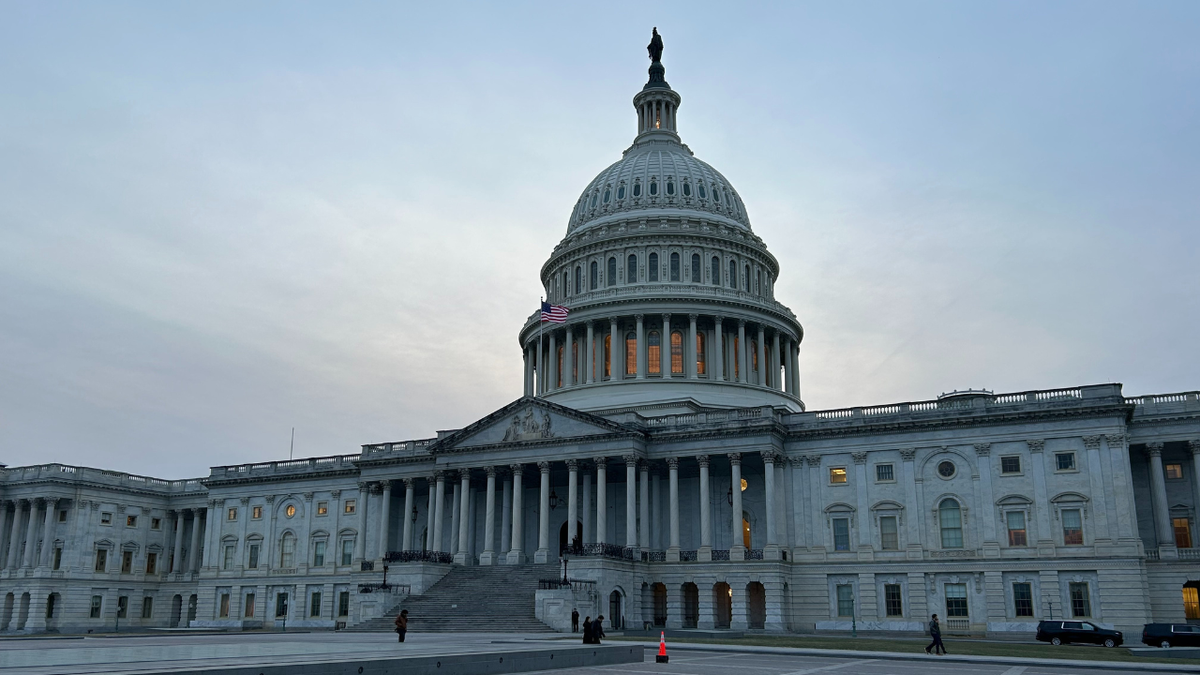
U.S. Capitol Building at sunset on Jan. 30, 2025. (Fox News Digital)
The House barely approved the package, 214-212, last month. Flip one vote and the bill would have failed. Now, it’s up to the Senate to align with the House. Senators must do so before a July 18 deadline.
Senate Majority Leader John Thune, R-S.D., noted that the measure was “subject to amendments.” A change to the plan means the Senate would have to bounce it back to the House to sync up. And the administration hopes to do multiple rescissions plans this year. So if the House and Senate can’t even trim a few billion dollars from what the GOP considers low-hanging fruit….
Cutting public broadcasting? Especially in rural areas?
Sen. Mike Rounds, R-S.D., who represents a sprawling state which still relies on radio in places, indicated that he’d like to see some changes to the rescissions package, especially in light of the flooding in Texas.
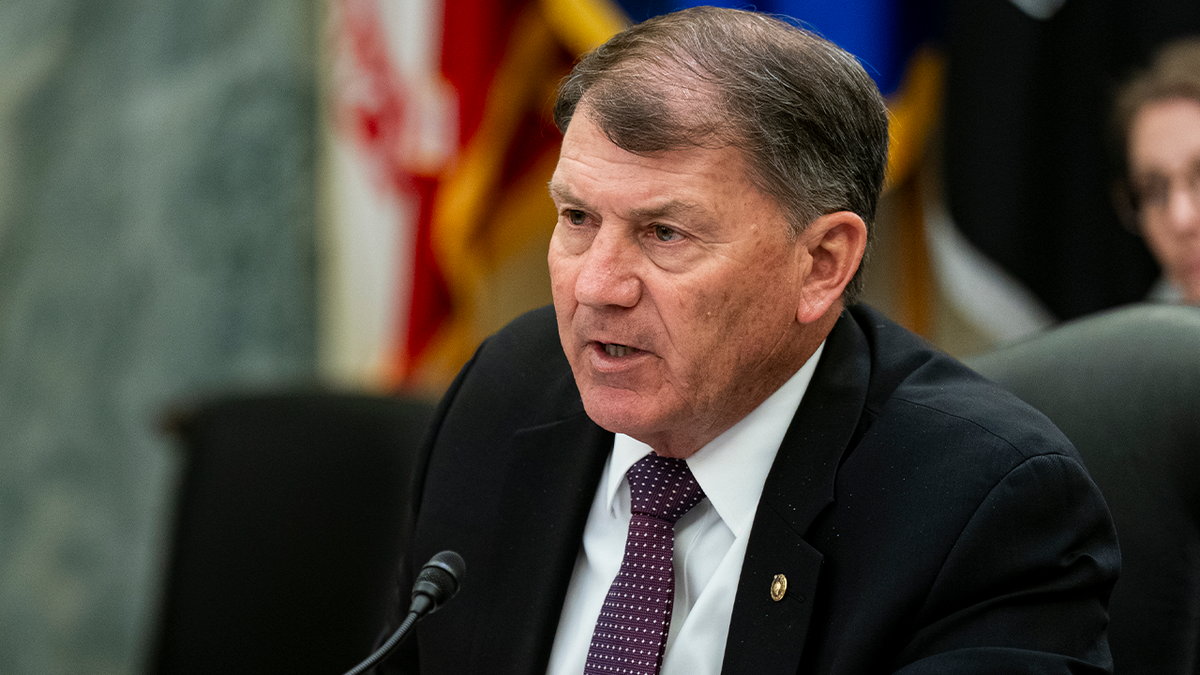
South Dakota Sen. Mike Rounds was a panelist for the inaugural Reagan National Economic Forum in California. (Getty Images)
“Looking at radio stations in some of the rural areas that do a lot of emergency services,” said Rounds.
Without question, the biggest challenge facing Congress this fall – and next fall – is funding the government and avoiding a shutdown. Congress managed to avoid a shutdown in March – simply renewing all existing funding at the levels dictated by the Democrat-controlled Congress last year, and signed off by former President Biden. The only reason they avoided a shutdown was because Senate Minority Leader Chuck Schumer, D-N.Y., decided a shutdown was a worse option.
So Schumer and several Democrats voted to assist the GOP overcome a filibuster – and keep the government lights burning.
Democrats railed against Schumer for essentially helping bail out Republicans and getting nothing in return. Some called on him to step aside. House Minority Leader Hakeem Jeffries, D-N.Y., and other Democrats seethed at Schumer’s maneuver.
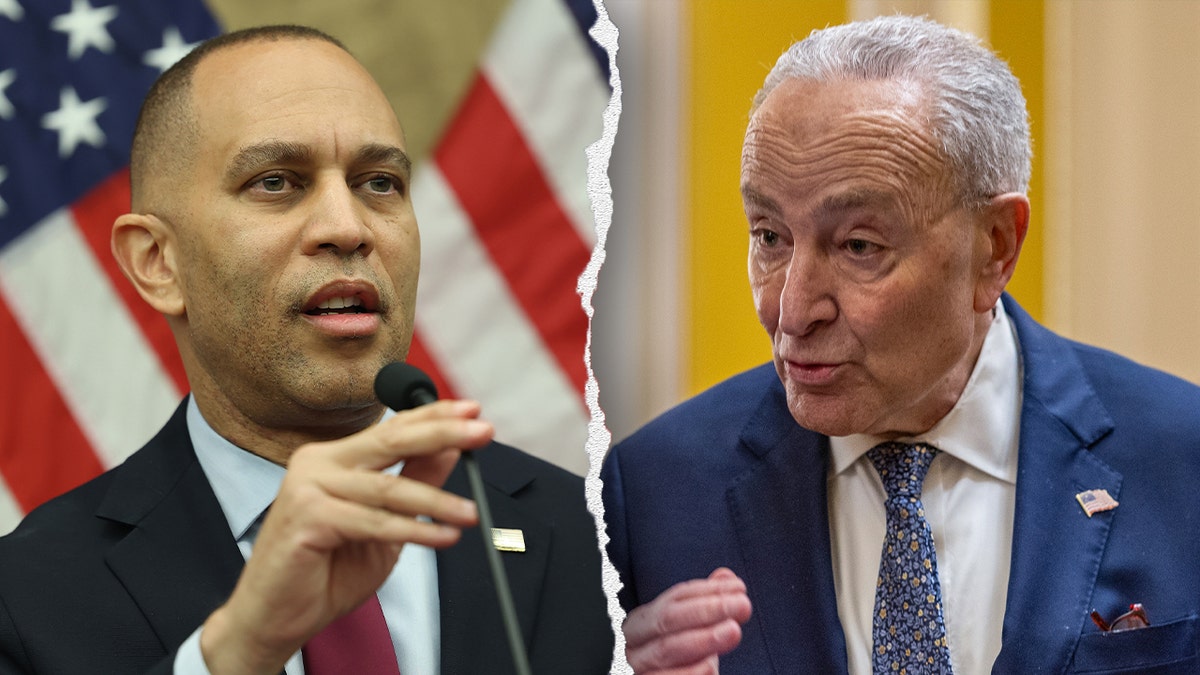
The New York Times Editorial Board accused the Democratic Party of being in “denial” over why it lost in 2024. (Getty Images)
Schumer can probably only go to that well once. One wonders what Schumer could possibly extract from Republicans and President Trump – who aren’t exactly ready to deal – even though they lack the votes to fund the government themselves.
Moreover, it’s unclear if a government funding measure of any sort can even make it through the House with just GOP votes.
Remember that House Speaker Mike Johnson, R-La., promised conservatives that they would do funding bills one by one when he secured the speakership in October 2023. After all, that was the knock against former House Speaker Kevin McCarthy, R-Calif.
Johnson managed to advance some spending bills last year, but the path to doing all 12 spending bills before the Oct. 1 deadline is narrowing. The House Appropriations Committee has readied several spending packages through the spring and early summer, but none are ready for the floor.
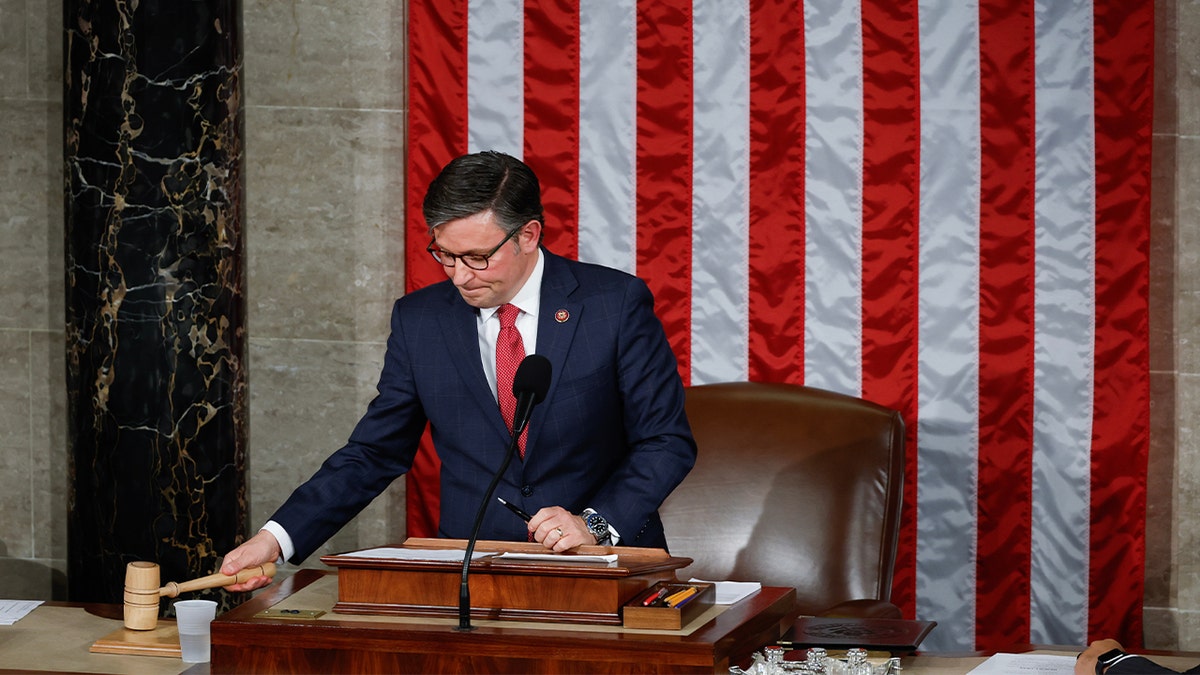
House Speaker Mike Johnson. (Ting Shen)
What’s the magic potion for funding the government on time this year?
Well, the question is whether Johnson can again keep his coalition together and convince conservatives to approve yet another interim spending measure. And, since it’s about the math, they absolutely must have assistance from Schumer and Senate Democrats to avoid a filibuster yet again.
Some of this will boil down to what President Trump wants. The easy path is simply re-upping the old Biden/Democrats’ money (again) for a short period and then hammering out a broader spending pact later in the fall or before Christmas. But that doesn’t change the numbers in the House and Senate.
And guess what? They have to do this all again by Oct. 1, 2026.

From left to right, Senate Majority Leader John Thune, President Donald Trump and House Speaker Mike Johnson. (Getty Images)
There are also expectations – and some promises – of GOP leaders advancing another “reconciliation” package full of items they weren’t able to stuff into the Big, Beautiful Bill. A “reconciliation” measure must deal with fiscal issues – not policy. It must also not add to the deficit over a decade.
So, expect Republicans who didn’t score certain savings items in the Big, Beautiful Bill to push for provisions in this package. Sen. Ron Johnson, R-Wisc., has been among the most vocal advocates for two bills. Senate Budget Committee Chairman Lindsey Graham, R-S.C., even pushed for two reconciliation packages over the winter. He preferred a plan focused on beefing up the military and the border. Graham then wanted GOPers to turn to a bill to cut spending and accomplish many of the goals outlined by the Big, Beautiful Bill.
In fact, the Senate’s initial budgetary framework – adopted in February – focused on the border and military.
What else is at stake?
Well, Republicans are simultaneously looking backwards – and forwards.
House Oversight Committee Chairman James Comer, R-Ky., is conducting an inquiry into what former Biden officials knew about the cognitive state of the former president. Republicans want to prevent future presidents from relying on staff if they are potentially out of it. The GOP wants to construct legislative remedies to address a potential future executive who can’t handle the job.
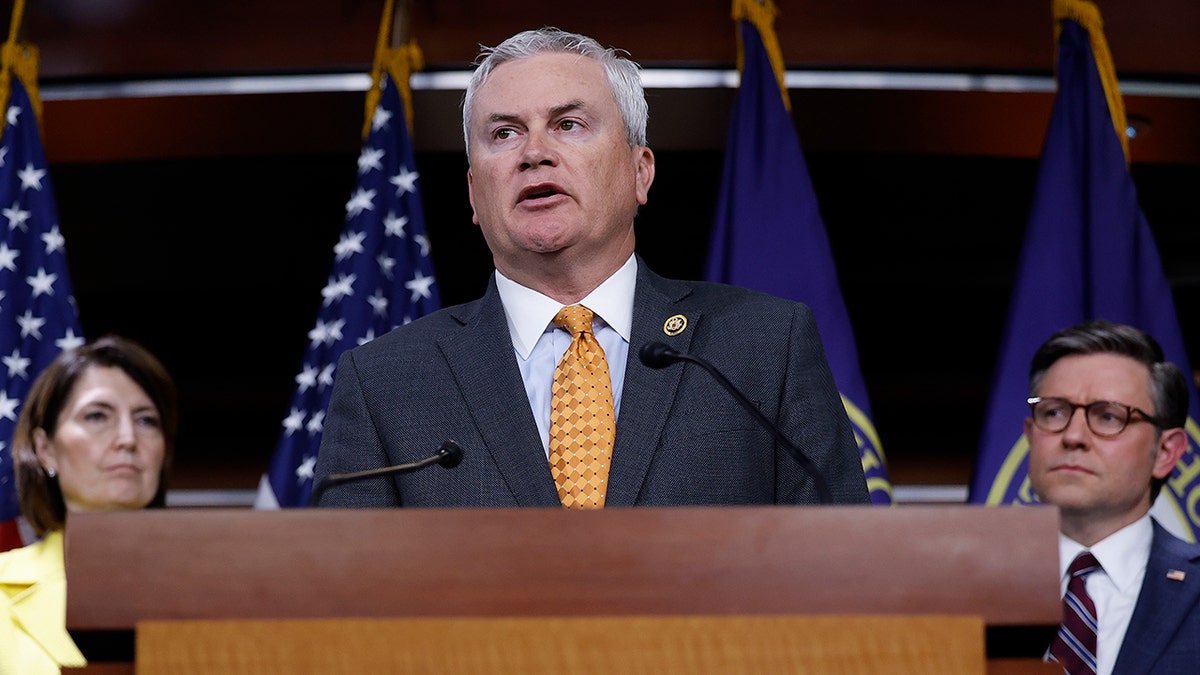
House Oversight and Accountability Committee Chair James Comer speaks during a news conference. (Chip Somodevilla/Getty Images)
But we’ve been down this road before. Edith Wilson practically acted as president after Woodrow Wilson suffered a stroke.
The press corps was complicit in hiding the physical condition of President Franklin Delano Roosevelt in the 1930s and 1940s.
Addressing a future impaired executive is a worthy exercise, but gazing backwards may be problematic for the GOP. Republicans don’t really have a good Democratic foil right now. Biden provides that. And so while the GOP focused on investigating the Bidens in 2023 and 2024, they’re going back to the same well again. It also doesn’t hurt Republicans politically to find out what former Vice President Kamala Harris knew. Same with former Transportation Secretary Pete Buttigieg. Both are flirting with a 2028 presidential bid.
CLICK HERE TO GET THE FOX NEWS APP
This comprises much of the agenda for lawmakers over the coming months. The midterms will be here soon enough. Most anything else will likely pale in comparison to the Big, Beautiful Bill. And with the touchstone of President Trump’s agenda now signed into law, Democrats are now determining how to weaponize it against Republicans in the fall of 2026.
Most of the legislative agenda is in the books.
So what do they do now?
Campaign.
